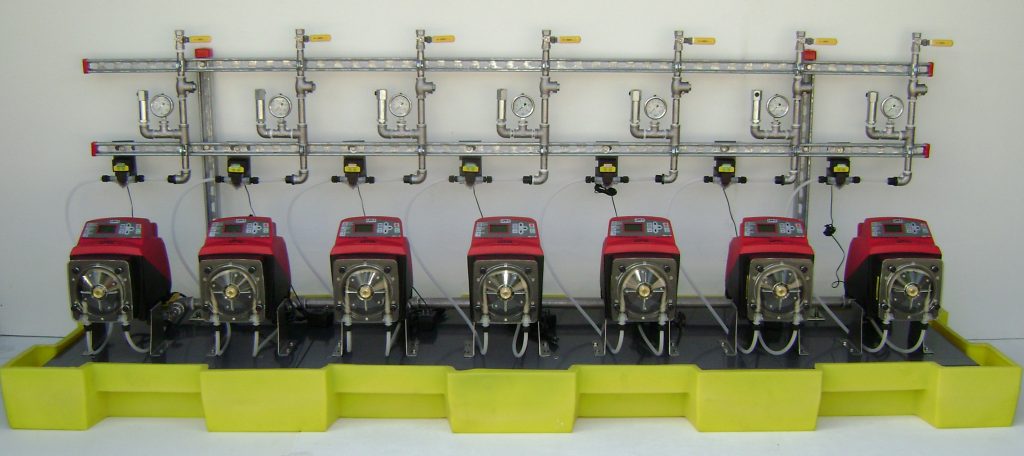<p style="text-align: justify;">For various industrial and research purposes, chemicals are often required to be transferred with the help of some pumps such as centrifugal pumps or displacement pumps according to the demand of the exercise. These pumps are generally corrosion-proof and less vulnerable to the abrasions of various chemical fluids. Besides pumps, industries are nowadays showing increasing interests in using chemical laser which is a good substitute of manual tools like saw, knives etc. Certain chemical reactions provide the necessary impetus to drive chemical laser. Such lasers can generate power reaching up to several megawatts. Ceaseless laser waves are capable of hacking and boring of harder materials.</p>
<h3 style="text-align: justify;"><b>Working Principle of Pumps</b></h3>
<p style="text-align: justify;">The pumps which are used for transferring chemicals are called <b>Chemical pumps</b>. These pumps often work on the basic principle of centrifugal force generated in an object by rotation around a fixed core. The centrifugal force, in turn, is utilized to create a vacuum which in turn transfers the chemical by suction method. This kind of pumps is generally used to shift chemicals in moderate pressure. Single-staged end suction pumps are centrifugal pumps. Another kind of pumps is Positive displacement pumps. Screw pumps, double-diaphragm pumps, plunger pumps are Positive displacement pumps. They generally transfer chemicals in high pressure.</p>
<h3 style="text-align: justify;"><b>Different Types of Pumps</b></h3>
<p style="text-align: justify;">There different fields where these pumps can be used. Depending on the fields of use, <b>Chemical pumps </b>can be of different types. One such type is Polymer melt pump. This pump deals with movement of viscous polymer fluid in high temperature. Magnetic drive pumps deal with a wide variety of chemical liquids. In such pumps, a drive magnet is positioned at the tip of motor rod. This is a very cost-effective variety of chemical pumps. A variant of centrifugal pump is sealless pump. Mechanical seals are absent in these pumps. Instead, a stationary cover seals the liquid.</p>
<h3 style="text-align: justify;"><b>Benefits of Pumps </b></h3>
<p style="text-align: justify;">These pumps are generally energy efficient, especially in moderate or low flow range. In fact, energy effectiveness should be the primary concern for such pumps. Centrifugal pumps require very reasonable maintenance cost also. Durability is also a proven advantage with these pumps as they are almost fully resistant to chemical reactions. Almost all pumps in this segment ensure that there is no backflow of the liquid, reducing risks to a negligible extent. Even in physiologically sensitive industries like food, beverage, medicine and cosmetic etc, the pumps can be used without hesitation for hygienic operations and maintenances.</p>

Chemical Pumps Are The Best Carrier Of Chemical Liquids
